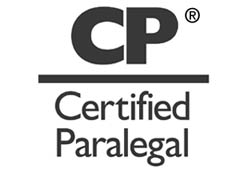 Considering becoming a freelance paralegal?
Considering becoming a freelance paralegal?
You should take a serious look at your motives, personality, experience, and finances, just for starters. I am going to give you the good, the bad, and the ugly on being a freelance paralegal versus being a law-firm-employed paralegal.
I prefer bad news first, so here goes…
• You will not get rich quickly by becoming a freelance paralegal.
It is difficult to come up with an accurate figure for the average income of virtual paralegals because there are so many variables such as experience level and practice area. Additionally, some virtual paralegals work only part-time while others work well over a 40 hour work week. Simplyhired.com lists the average income of virtual paralegals as $33,000. Ehow.com lists freelance paralegal incomes at a mean annual wage of $48,460. Keep in mind that as a self-employed person you are responsible for all of your taxes and benefits. You are also not compensated for vacation time or sick days.
• As a freelance paralegal, you don’t get paid for non-billable hours.
As a law firm employee, you earn the same base salary no matter what your billable to non-billable hour ratio may be. As a freelance paralegal, no one is paying you for those non-billable hours, and there are a lot more of them. In the labor intensive start-up phase, all of your time is non-billable. Once your business is rolling along, you can still spend one non-billable hour for every hour you bill. Under the most efficient operation, you will spend about 25% of your time on non-billable tasks. Keep in mind that your income will also fluctuate from month to month unlike a salaried position.
• You pay all of your own expenses as a freelance paralegal.
I know it is obvious that you pay your own expenses, but you may not realize how many expenses there can be. Here is a brief list: business license; Secretary of State registration; web hosting; web design; office equipment; office furniture; phone system; office supplies; paralegal certification; CLE; paralegal association fees; marketing costs; business cards; letter head; technical support; subscriptions; software; computer back up; and many others. These expenses add up quickly and you must have the capital to invest in them before your business is making money.
Now, how about some good news…
• As a freelance paralegal, you can choose what cases you work on.
As a law firm employee, you work the cases the firm decides to take regardless of whether or not you “believe in” the argument you are working so hard to win. As a freelance paralegal you can graciously decline work that does not appeal to you or that you have a moral objection to. Your job satisfaction increases tremendously when you work on cases that you are passionate about. If you would hypothetically do the work for free, you know you are doing work that you love and that you believe in.
• When you freelance, you can set your own schedule.
For many, having control over their work schedule is the single greatest advantage to working as a freelance paralegal. You can set a flexible schedule for yourself to work with family obligations, hobbies, volunteer work, exercise or other commitments. You are still working with deadlines set by others, but when you choose to put in the hours to meet those deadlines is in your control. You can also choose how much vacation time you take and when you take it.
• As a freelance paralegal, you can learn a variety of skills outside of the paralegal world.
As a business owner, you will wear more hats than you ever dreamed possible. In each facet of business ownership, you will gain skills and stretch yourself professionally more than you would as an employee of someone else. You can choose which areas of business ownership you want to master and which ones you want to outsource to others.
The not so ugly, ugly…
• You must have the heart of an entrepreneur to be a freelance paralegal.
The reality is that not just anyone can become a successful freelance paralegal. This is where you must evaluate your motives. Are you looking for an escape from a bad boss or have you always dreamed of running your own legal services business? You may love being a paralegal, but do you love being a marketer, an administrator, an accountant, an office manager and a contract negotiator? This may be one of the most important considerations in deciding whether or not to become a freelance paralegal. Many attorneys face this same dilemma when considering starting their own firms. They may love practicing law, but have no interest in running a business. Give this one some thought.
Photo by Rookie Joe
 Misty L. Sheffield is a freelance paralegal helping solos and small law firms in civil litigation. She has been assisting attorneys for over 12 years.
Misty L. Sheffield is a freelance paralegal helping solos and small law firms in civil litigation. She has been assisting attorneys for over 12 years. 



[…] what kind of lawyer Santa would be? I think he would make a terrific attorney. The type a freelance paralegal like myself loves to work with. Here are a few reasons […]
[…] there a difference between a freelance paralegal and a virtual paralegal? Which one should an attorney look for when needing some extra […]
Great info. Thanks!
[…] I used to sit in Atlanta traffic each morning and dream of becoming a freelance paralegal (it was 1992 so “virtual” was not an option). In 1994, I began drafting a business plan to make my dream a reality. The only resources I had to work with were for small business start-ups in general. There was nothing available for paralegals specifically. I would have paid dearly to have an hour to pick the brain of a successful freelance paralegal. […]